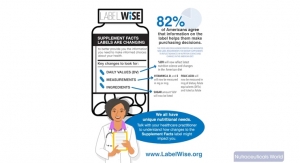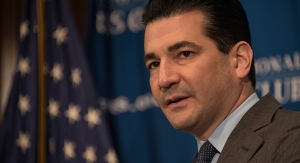04.08.19
The Council for Responsible Nutrition (CRN) is opening up membership to companies that market hemp-derived CBD and whole spectrum hemp extract in food and dietary supplements. CRN’s Board of Directors voted on the decision in March and accepted three new CBD-related companies for membership: CV Sciences, OLEO Inc. and Demetrix.
“Responsible marketers of hemp-derived CBD and whole spectrum hemp deserve to have a voice in the industry and in Washington, D.C., and CRN is proud to provide a platform for these companies to join us as we work to create a regulatory path forward to market CBD in food and dietary supplements,” said Steve Mister, president & CEO, CRN.
The Food and Drug Administration (FDA) maintains that hemp-derived CBD in food or supplements is unlawful, notwithstanding the recently passed Farm Bill, because of prior substantial clinical investigations of CBD as a drug before being sold as a food or supplement. Nevertheless, outgoing FDA Commissioner Scott Gottlieb recently acknowledged that the agency is exercising enforcement discretion for CBD products to focus primarily on “over-the-line claims.” But that still leaves in full force and effect the wide range of legal requirements for dietary supplements and functional food with which any producer of these products should comply.
“Nothing about FDA’s acknowledgement of enforcement discretion exempts a CBD manufacturer from good manufacturing practices, the prohibition on making disease claims, the requirement for claim substantiation, serious adverse event reporting, and all of the other aspects of our comprehensively regulated industry,” said Mister. “Our board sees wisdom in admitting as CRN members those CBD companies who are playing by those rules. Unfortunately, many companies marketing products as containing CBD are not observing these compliance obligations, to put it mildly. Pursuing membership in CRN not only demonstrates to consumers a commitment to bringing safe, quality products to the market, but also a commitment to being part of the responsible, mainstream dietary supplement marketplace.”
In addition to CRN’s stringent vetting procedures for compliance with the industry’s full regulatory regime, CRN will subject all potential CBD members to the additional requirements that their products or ingredients be derived from hemp, not marijuana, since only hemp has been de-scheduled as a controlled substance; and that the ingredients and products must contain less than 0.3% THC.
CRN continues to urge FDA to clarify the regulatory path forward for CBD, and is working with allies in Congress and other influencers to bring this about as quickly as possible. CRN said it looks forward to participating in FDA’s public meeting on CBD on May 31 and CRN’s CBD Task Force continues to meet frequently to plot strategy and share insights.
“Responsible marketers of hemp-derived CBD and whole spectrum hemp deserve to have a voice in the industry and in Washington, D.C., and CRN is proud to provide a platform for these companies to join us as we work to create a regulatory path forward to market CBD in food and dietary supplements,” said Steve Mister, president & CEO, CRN.
The Food and Drug Administration (FDA) maintains that hemp-derived CBD in food or supplements is unlawful, notwithstanding the recently passed Farm Bill, because of prior substantial clinical investigations of CBD as a drug before being sold as a food or supplement. Nevertheless, outgoing FDA Commissioner Scott Gottlieb recently acknowledged that the agency is exercising enforcement discretion for CBD products to focus primarily on “over-the-line claims.” But that still leaves in full force and effect the wide range of legal requirements for dietary supplements and functional food with which any producer of these products should comply.
“Nothing about FDA’s acknowledgement of enforcement discretion exempts a CBD manufacturer from good manufacturing practices, the prohibition on making disease claims, the requirement for claim substantiation, serious adverse event reporting, and all of the other aspects of our comprehensively regulated industry,” said Mister. “Our board sees wisdom in admitting as CRN members those CBD companies who are playing by those rules. Unfortunately, many companies marketing products as containing CBD are not observing these compliance obligations, to put it mildly. Pursuing membership in CRN not only demonstrates to consumers a commitment to bringing safe, quality products to the market, but also a commitment to being part of the responsible, mainstream dietary supplement marketplace.”
In addition to CRN’s stringent vetting procedures for compliance with the industry’s full regulatory regime, CRN will subject all potential CBD members to the additional requirements that their products or ingredients be derived from hemp, not marijuana, since only hemp has been de-scheduled as a controlled substance; and that the ingredients and products must contain less than 0.3% THC.
CRN continues to urge FDA to clarify the regulatory path forward for CBD, and is working with allies in Congress and other influencers to bring this about as quickly as possible. CRN said it looks forward to participating in FDA’s public meeting on CBD on May 31 and CRN’s CBD Task Force continues to meet frequently to plot strategy and share insights.























